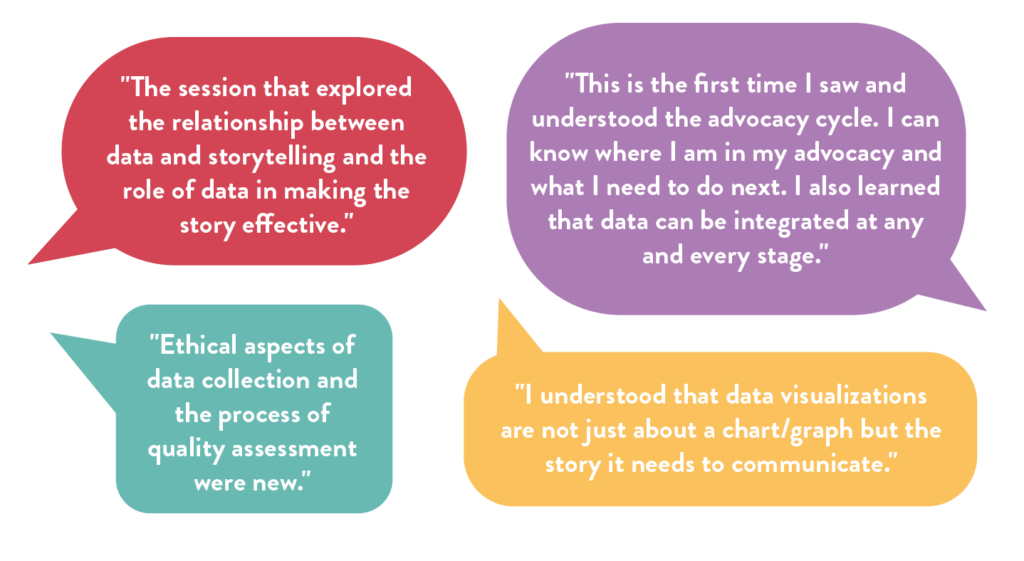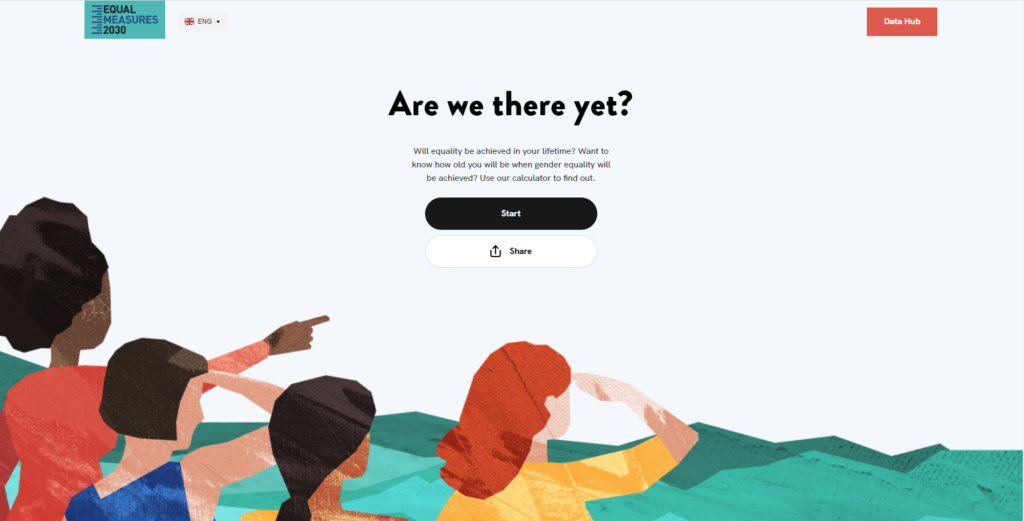Written by Coretta M. P. Jonah, Senior Data Capacity Lead Equal Measures 2030, Aarushi Khanna, Asia Pacific Regional Lead, Equal Measures 2030 and Shiwa Karmacharya, Programme Officer, ARROW
In the fight for gender equality and sexual and reproductive health rights (SRHR), data is a potent tool. When combined with advocacy it becomes a powerful catalyst for changing perceptions and driving long-lasting outcomes, such as policy changes.
But what happens when advocates lack the skills to wield it effectively? This is the challenge Equal Measures 2030 (EM2030) set out to address with our Data-Driven Advocacy (DDA) training. In May 2024, we partnered with ARROW to bring these crucial skills to the Reproductive Health and Rights Network (RHRN) in Bangladesh. Here’s how we’re turning numbers into action and advocates into data champions.
Overcoming Gaps
Whilst data can be a powerful tool, many gender equality advocates struggle to understand and access the data they need to drive change. Many also lack the skills needed to transform their lived experiences into compelling stories that inspire action.
Recognising this gap, the EM2030 coalition developed the Data-Driven Advocacy (DDA) training manual to be used in collaboration with coalition members and beyond to train gender advocates. The comprehensive resources equip advocates with the essential skills to wield data effectively in their advocacy efforts. The DDA training covers:
- Introductory data analysis
- Creating data visualisations
- Using data for compelling story telling
- Creating data-driven advocacy messages
Collaborating for Impact
In May 2024, we teamed up with our EM2030 coalition member, ARROW, to deliver the DDA for Gender Equality and Sexual and Reproductive Health and Rights (SRHR) training to the Reproductive Health and Rights Network (RHRN) in Bangladesh.
The RHRN network is a multi-country initiative, and, in Bangladesh, comprises seven individual organisations that advocate for change on SRHR issues. The DDA training provided the network participants with essential data-driven advocacy skills to amplify their own advocacy agendas.
Before the training, we engaged with the network to gain an understanding of their data use journey and expectations from the training. The members of the network were already familiar with data, using it for advocacy and documenting impact. For instance, one organisation, Naripokko, collects data to captures women’s experience of accessing health services from government facilities and utilises this data in their advocacy to improve quality.
Another organisation shared that they have been “conducting sessions on SRHR with young boys and girls in schools; as part of this effort, we conduct pre and post surveys to understand the impact of the sessions. The data collected is then shared with funders, on our social media as impact of our intervention.’
However, as a network, they identified the need to strengthen their capacity in data collection, analysis, and creating data-driven messaging for advocacy. The members also planned to cascade these learnings from the training to field teams.
Developing the training
As a coalition we recognize the need to have multiple voices engaged in the design and delivery of the training. Informed by the experiences and knowledge of the advocates, we co-designed a bespoke three-day in-person training. We aimed to balance teaching with a hands-on practice-based approach to engage advocates, and together, we covered contextual and subject matter-specific knowledge on SRHR and the Asia-Pacific region.
Here are some testimonies from participants on the concepts that most resonated with them throughout our training:

The training resonated deeply with participants, equipping them with new perspectives and skills. Here’s what some of them had to say:




Global Reach and Future Goals
Since launching the DDA training in 2019, we’ve reached thousands of advocates across three regions. As the world grapples with slow progress on gender equality, shrinking civic space and reduced financial aid towards rights agendas, the need for empowered advocates is more urgent than ever.
Through our DDA trainings, the EM2030 coalition continues to strengthen networks and enhance the capacity of advocates around the world. Our goal is to achieve lasting policy changes and advance gender equality on a global scale. We’re committed to expanding our reach, refining our training based on feedback, and adapting to the evolving needs of advocates in different contexts. We believe that by equipping more champions with data skills, we can accelerate progress towards a more gender-equal future.


